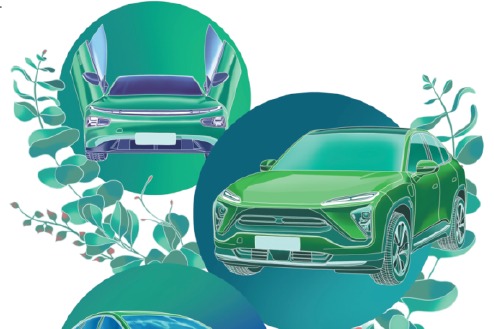Need to make TCM more effective, and acceptable to youths


Editor's Note: More than four decades of reform and opening-up have not only transformed China into the world's second-largest economy but also changed its people's lifestyle. A veteran journalist with China Daily tries to analyze how common folks view traditional Chinese medicine.
When I visited my community clinic recently for some medicines, I saw a new face in the consultation room. "Yes, traditional Chinese medicine has been added to our service and I am here to help you," the new face welcomed me. Together with her assistants, the TCM practitioner not only prescribes medicines but also offers acupuncture and massage services, which the elderly patients seem to welcome.
The newly added service is part of the central government's efforts to help develop TCM. According to a recent document, preferential policies will be issued to support the development of TCM, and all hospitals and township clinics will offer TCM services by the end of 2025.
Whenever the government has taken supportive measures to help a sector, we know that the sector is new but strategically important but facing trouble. TCM apparently belongs to the latter category.
Since its introduction in China in the early 20th century, Western medicine has gained ground at the cost of TCM, whose history is as long as that of China. In fact, by the end of 2020, only about 7 percent of the more than 1 million medical institutions in China were still providing TCM services.
Since the founding of the People's Republic in 1949, governments at all levels have been making efforts to help develop TCM-in fact, TCM development has been written into the country's Constitution. And dozens of TCM colleges and universities, and hundreds of TCM hospitals have been established.
But the results of these efforts have not been satisfactory. While many Western medicine hospitals are crowded, TCM hospitals, with a few exceptions, are largely deserted. And while the Western medicine hospitals are expanding both in number and scale-the largest in China boasts of more than 10,000 beds-TCM hospitals, including the best ones in Beijing, are smaller both in number and scale. Worse, the younger generations seem to trust TCM less than Western medicine.
To ensure the new efforts to develop TCM do not end in vain, the status of TCM should be ascertained. And some experts have given the following proposals to improve the development of TCM:
First, TCM and Western medicine have different medical theories, with the former appearing complicated to most of the patients. As such, more studies should be conducted to make the theories easier to understand to make it acceptable to the people, especially the younger generations and foreigners.
Second, the training process for medical students should be adjusted to include the distinct characteristics of TCM, which lays stress on clinical follow-ups and use of ancient prescriptions, and the traditional master-apprentice arrangement should be followed because it is best suited to train a new generation of TCM masters.
Third, TCM doctors should receive education and training in such a way that they are able to diagnose diseases using traditional methods-looking at, listening to and questioning the patient, and feeling his or her pulse. I was once introduced to a TCM master, who, after looking at me and feeling my pulse for a few seconds, told me my health problems, some of which I had suffered two decades ago. How can one not trust such a doctor?
But if you consult a TCM practitioner for a mild cold or cough today, you will likely be asked to get a blood test, an X-ray and possibly other pathology tests done before being prescribed medicines.
No wonder many Chinese families have a box full of TCMs at home including liquids, tablets, pills, granules and herbs-all leftovers from the doses prescribed by TCM practitioners. That TCMs are made of herbs and have little side-effects encourages doctors to prescribe more than the necessary doses, which the patients have to buy from the hospital pharmacy, which helps the hospitals and doctors make added profits.
Each year, I have to sort my medicine box to dispose pounds of expired medicines which had cost me hundreds of yuan. While feeling guilty for the waste, I can't help but ask: Is there anything wrong with TCM?
The author is former deputy editor-in-chief of China Daily.
If you have a specific expertise, or would like to share your thought about our stories, then send us your writings at [email protected], and [email protected].


































